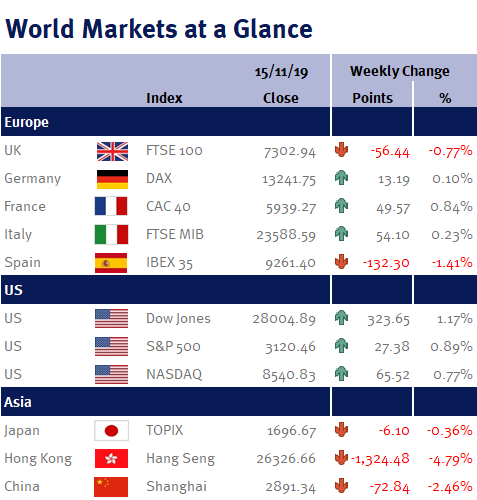In the UK this week, the BoE held interest rates at 0.75%, although, the vote was not unanimous as two members voted to cut interest rates. Following the announcement the pound fell, which helped lift the FTSE 100 (a fall in the pound boosts the revenue of the index, as the majority is generated offshore).
It finally seems the Monetary Policy Committee is waking up to reality, we have said a number of times before; given the global economic back drop, Brexit and the UK consumers sensitivity to interest rates, the BoE would need to maintain accommodative monetary policy for some time. And despite Mark Carney’s recent hawkish statements, interest rates were more likely to be cut than increased.
Alongside monetary policy, the BoE also changed its Brexit assumptions and no longer assumes an “average” of all possible outcomes, instead, it now assumes an orderly transition to a “deep free trade agreement” that takes place over a shorter horizon. As a result, the bank also cut the UK’s growth forecasts to 0.1% for 2020 and 0.5% for 2021. With a general election to overcome before there is any further clarity on Brexit, the bank has now entered a blackout period until after the elections however, the change in Brexit assumptions already risks accusations of political interference.
Next week key data releases include UK labour statistics, UK, German and Japanese third quarter GDP and UK, German and US inflation. Also taking place are the Spanish elections and the world’s biggest shopping event “Singles’ Day”.
Peter Quayle, Investment Management Expert*
*Peter Quayle is a Fund Manager at Wealth at Work Limited which is a member of the Wealth at Work group of companies


